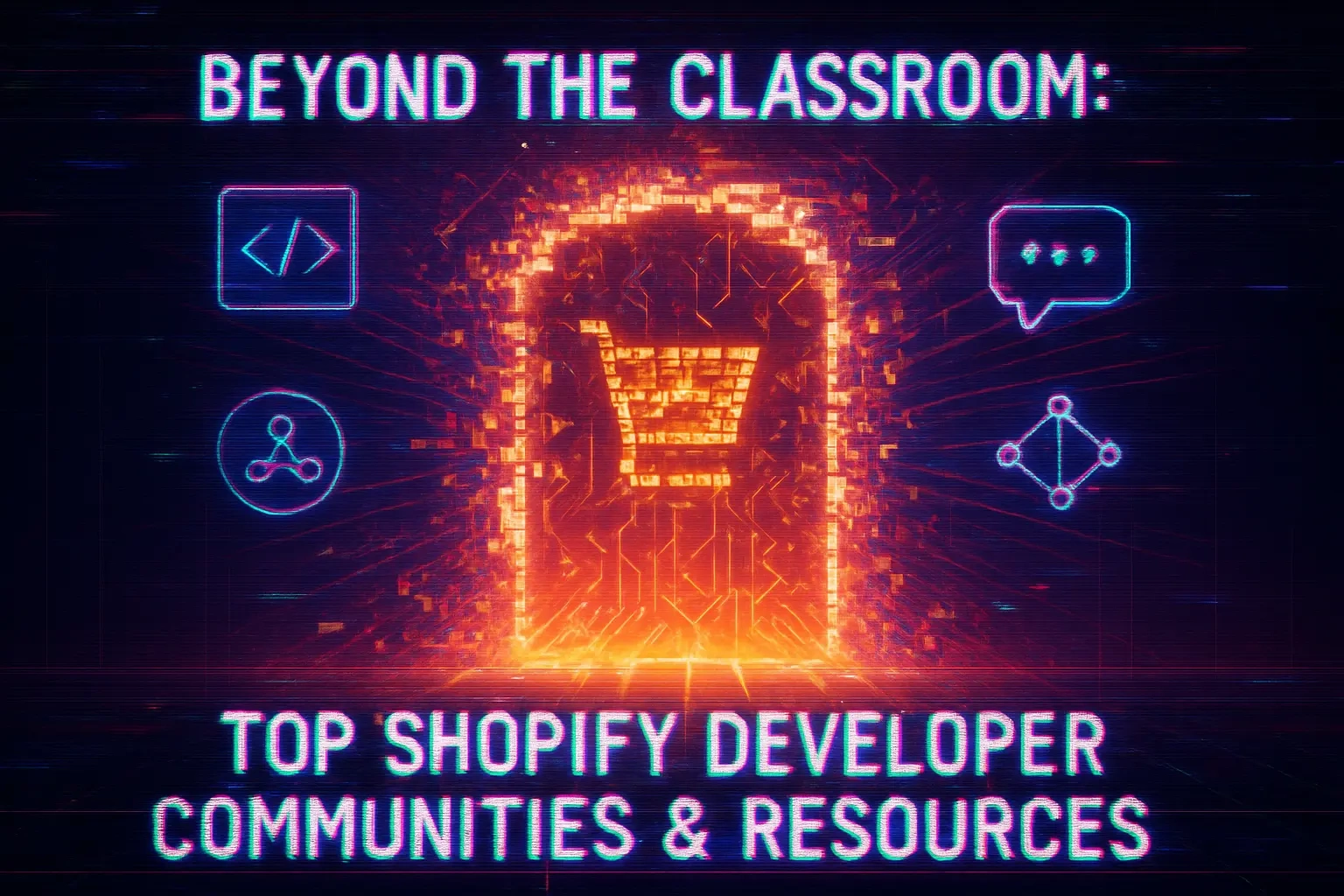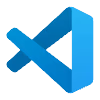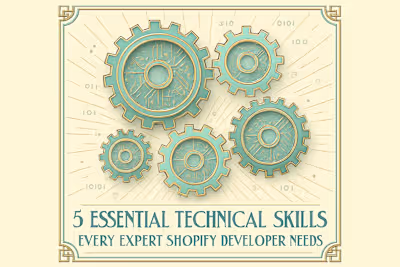Beyond the Classroom: Top Shopify Developer Communities & Resources

Beyond the Classroom: Top Shopify Developer Communities & Resources
Official Shopify Resources
The Official Shopify Community Forums
Shopify.dev: The Developer Hub
The Shopify Developer Changelog
Developer-Focused Online Communities
Reddit Communities
Slack and Discord Channels
Facebook and LinkedIn Groups
Essential Blogs, Newsletters, and YouTube Channels
Key YouTube Channels
Developer Blogs and Newsletters
How to Make the Most of These Resources
Don't Be Afraid to Ask Questions
Give Back to the Community
Build Your Professional Network
References
Beyond the Classroom: Top Shopify Developer Communities & Resources
Formal courses and tutorials are essential, but some of the most valuable learning happens within the community. Engaging with other developers allows you to solve problems faster, discover new techniques, and stay current in the fast-paced world of e-commerce. This guide introduces the top communities and resources that every Shopify developer should know about.
By leveraging these platforms, you can supplement your knowledge and avoid the common newbie mistakes many developers make when working in isolation. For businesses, developers active in these communities are often the most passionate and knowledgeable, making them great candidates when you need to hire expert Shopify developers.
Official Shopify Resources
Shopify itself provides several high-quality platforms for developers to learn, connect, and stay informed. These should be your first port of call.
The Official Shopify Community Forums
The Shopify Community is a massive forum with nearly 900,000 members where merchants, partners, and developers discuss everything from technical Q&A to marketing strategies. The 'Partners and Developers' section is particularly valuable for technical problem-solving.
What makes this forum special is its diversity. You'll find everyone from complete beginners asking about basic Liquid syntax to seasoned pros discussing advanced API implementations. The beauty lies in this mix - you can learn from questions you haven't thought to ask yet.
The forum is organized into clear categories. Need help with theme development? There's a section for that. Struggling with app authentication? You'll find dedicated threads. The search function is surprisingly robust, and chances are someone has already encountered your exact problem.
One thing I love about the official forums is the presence of Shopify staff members. They're marked with special badges and often jump in to clarify documentation or confirm whether something is a bug. This direct line to the platform creators is invaluable when you're stuck on something tricky.
Shopify.dev: The Developer Hub
Shopify.dev is the central hub for all developer documentation, tutorials, and API references. It's an indispensable resource for building themes, apps, and custom storefronts.
Think of it as your technical bible. Every API endpoint, every Liquid filter, every webhook event - it's all documented here. The site recently got a major overhaul, making it much easier to navigate. The search functionality now actually returns relevant results, which wasn't always the case in the past.
What sets Shopify.dev apart is the quality of its tutorials. They're not just dry technical specs. You'll find complete walkthroughs for building real features, with code examples you can actually use. The "Getting Started" guides are particularly well-crafted, taking you from zero to functioning app or theme step by step.
The interactive API explorer is a game-changer. You can test queries and mutations right in your browser without setting up a development environment. This feature alone has saved me countless hours when prototyping new features.
The Shopify Developer Changelog
The Developer Changelog is the best way to stay on top of platform updates, including API changes, new features, and deprecations. Checking this regularly is crucial for maintaining your apps and themes.
Here's why this resource is non-negotiable: Shopify moves fast. Really fast. New features roll out weekly, and sometimes these changes can break your existing code. The changelog gives you advance warning about deprecations, usually with a generous timeline to update your implementations.
I recommend setting up an RSS feed or email notification for the changelog. Spending five minutes weekly reviewing updates can save you from emergency debugging sessions when something suddenly stops working. The changelog entries are concise but thorough, always including migration guides when breaking changes occur.
Pay special attention to the "Action Required" tags. These indicate changes that will definitely affect your existing code. The Shopify team does an excellent job of providing code examples showing both the old and new way of doing things.
Developer-Focused Online Communities
Beyond the official channels, a vibrant ecosystem of independent communities exists where developers share knowledge in a more informal setting.
Reddit Communities
The r/Shopify subreddit is a large and active community for general discussion, but r/shopifydevs is more focused on the technical aspects of development. Here you can ask specific coding questions and get feedback from experienced developers.
Reddit's informal atmosphere encourages honest discussions. You'll see developers venting about frustrating API limitations, celebrating wins, and sharing clever workarounds. The upvote system naturally surfaces the most helpful content, making it easy to find quality answers.
r/shopifydevs is where the real technical discussions happen. People share code snippets, debate best practices, and help debug tricky problems. The community is surprisingly supportive - even basic questions get thoughtful responses. Just remember to search before posting, as many common issues have been thoroughly discussed.
What I appreciate most about Reddit is the diversity of perspectives. You'll get input from freelancers, agency developers, and in-house teams. This variety often leads to creative solutions you wouldn't find in more formal documentation.
Slack and Discord Channels
Real-time chat communities are excellent for quick questions and networking. The Shopify Partners Slack is a prominent group, and many other communities like 'eCommTalk' exist for developers to connect and collaborate.
The immediacy of Slack and Discord can't be beat. Stuck on a problem at 2 AM? Someone, somewhere in the world is probably online and willing to help. These platforms excel at fostering real relationships between developers.
In the Shopify Partners Slack, channels are organized by topic - #development for coding questions, #app-development for app-specific issues, and regional channels for local networking. The casual chat format encourages knowledge sharing that might not happen in more formal settings.
Discord communities tend to be slightly more informal and often include voice channels. Some groups host regular "office hours" where experienced developers help newcomers work through problems in real-time. It's like having a mentor on demand.
The key to success in these communities is participation. Don't just lurk - introduce yourself, share your wins, and help others when you can. The relationships you build here often lead to job opportunities and collaborations.
Facebook and LinkedIn Groups
Groups like 'Shopify Entrepreneurs' on Facebook and 'Shopify Store Owners, Experts, and Developers' on LinkedIn are massive networks for making connections and sharing expertise. While broader in scope, they are great for understanding merchant pain points.
These platforms might seem less technical, but they offer unique value. Facebook groups give you direct access to store owners - your end users. Understanding their frustrations and needs makes you a better developer. You'll see real-world problems that need solving, which can inspire your next app or service offering.
LinkedIn groups tend to be more professional and business-focused. Here you'll find agency owners, consultants, and decision-makers. It's an excellent place to establish your expertise by sharing thoughtful insights and case studies. The discussions often revolve around strategy and business impact rather than pure code.
The networking potential on these platforms is huge. A well-timed helpful comment can lead to freelance projects or full-time opportunities. Just remember to provide value first - nobody likes the person who only posts self-promotional content.
Essential Blogs, Newsletters, and YouTube Channels
Staying informed through curated content is an efficient way to keep your skills sharp and learn from experts in the field.
Key YouTube Channels
Channels like 'Shopify Devs' (the official channel) and independent creators provide video tutorials on everything from basic Liquid to advanced app development. Visual learners can benefit greatly from watching experts code in real-time.
The official Shopify Devs channel is pure gold. They host regular livestreams where engineers build features from scratch, explaining their thought process along the way. These aren't polished tutorials - you see the mistakes, the debugging, the real development process. It's incredibly educational.
Independent creators often fill gaps the official channel doesn't cover. They might focus on specific use cases, share productivity tips, or review new tools. Some channels specialize in theme development, others in app creation. Find creators whose style resonates with you and subscribe.
Video content excels at showing workflow and tools in action. Watching someone navigate their IDE, use debugging tools, or structure their projects teaches lessons that written tutorials often miss. Pay attention to the small details - keyboard shortcuts, file organization, testing approaches.
Don't just passively watch. Code along with the tutorials. Pause, rewind, experiment with variations. The best learning happens when you're actively engaged, not just consuming content.
Developer Blogs and Newsletters
Many Shopify agencies and expert developers run blogs that offer deep dives into complex topics. Subscribing to newsletters like 'Liquid Weekly' can deliver curated tips and news directly to your inbox.
Liquid Weekly is a must-subscribe. Every issue contains practical tips, updates about the platform, and links to useful resources. The curation saves you hours of searching for quality content. The author clearly understands what developers need to know.
Agency blogs often share real-world case studies. They'll walk through how they solved specific client problems, complete with code examples. This practical approach helps you understand not just the "how" but the "why" behind technical decisions.
Individual developer blogs tend to be more experimental. They might explore cutting-edge techniques, share performance optimization tricks, or document their learning journey. These personal perspectives often contain gems you won't find in official documentation.
The key is to be selective. Subscribe to a few high-quality sources rather than overwhelming yourself. Set aside regular time to read and experiment with what you learn. Knowledge without application doesn't stick.
How to Make the Most of These Resources
Simply joining these communities isn't enough. Active and strategic participation is key to unlocking their full value.
Don't Be Afraid to Ask Questions
Communities exist to help. When you're stuck, search for your problem first, but if you can't find an answer, ask a clear, well-formulated question. Provide context and code snippets to make it easier for others to help you.
Good questions get good answers. Start with what you're trying to achieve, not just the error you're seeing. Include relevant code, but trim out the unnecessary parts. Explain what you've already tried. This shows respect for people's time and increases your chances of getting helpful responses.
Format your code properly. Nothing frustrates helpers more than trying to read unformatted code dumps. Use code blocks, syntax highlighting, and clear comments. If the problem involves visual elements, include screenshots.
Be specific about your environment. Mention the Shopify API version, any relevant apps or themes, and browser details if it's a front-end issue. These details often hold the key to solving version-specific problems.
Follow up on solutions. If something works, mark it as solved and thank the helper. If it doesn't, provide more details about what happened. This back-and-forth often leads to deeper understanding for everyone involved.
Give Back to the Community
As you gain experience, start answering questions yourself. Helping others is one of the best ways to solidify your own knowledge. It also builds your reputation as a helpful expert in the community.
Teaching forces you to truly understand a concept. When you explain something to someone else, gaps in your knowledge become apparent. This process strengthens your own skills while helping others.
Start with questions you're confident about. Even if you're relatively new, you probably know something that would help someone just starting out. Share what you know, no matter how basic it might seem to you.
Your answers don't have to be perfect. If you're partially sure about something, say so. Often, your partial answer will prompt someone else to complete it, creating a collaborative learning experience.
Building a reputation as a helpful community member pays dividends. People remember those who helped them. This goodwill often leads to opportunities - whether it's freelance work, job offers, or valuable connections.
Build Your Professional Network
Use these platforms to connect with other developers, potential clients, and agency owners. Networking can lead to freelance projects, job opportunities, and valuable collaborations.
Networking in developer communities feels more natural than traditional networking events. You're connecting over shared interests and challenges. These authentic connections are more likely to develop into meaningful professional relationships.
Don't approach networking with a "what can I get" mindset. Focus on building genuine relationships. Comment on others' work, share interesting resources, and celebrate their successes. The opportunities will follow naturally.
Keep your profiles professional but personable. Include links to your portfolio, GitHub, or recent projects. Make it easy for people to understand your skills and interests. But also let your personality shine through - people hire people they like.
Remember that every interaction is a potential networking opportunity. The developer you help debug an issue today might recommend you for a project tomorrow. The store owner whose question you answer might need custom development work. Treat everyone with respect and professionalism.
Engaging with the Shopify developer community transforms your learning journey. These resources provide not just technical knowledge but also context, support, and opportunities. Whether you're debugging a tricky issue, staying updated on platform changes, or building your professional network, these communities are invaluable assets.
The key is consistent, genuine participation. Set aside time each week to engage with at least one community. Answer a question, share a resource, or simply thank someone for their helpful post. These small actions compound over time, building both your skills and your reputation.
Remember, even experienced developers rely on these communities. There's no shame in asking questions or admitting what you don't know. The Shopify ecosystem thrives on collaboration and shared learning. By actively participating, you're not just improving your own skills - you're contributing to a community that helps thousands of developers build better e-commerce experiences.
Start small. Pick one or two communities that resonate with you. Engage regularly. Share your journey. Before long, you'll find yourself not just consuming knowledge but creating it, becoming the expert others turn to for help. That's when you know you've truly moved beyond the classroom.
References
Like this project
Posted Jul 4, 2025
Accelerate your learning with the best Shopify developer communities, forums, and resources. Find expert advice, solve problems faster, and stay up-to-date.









